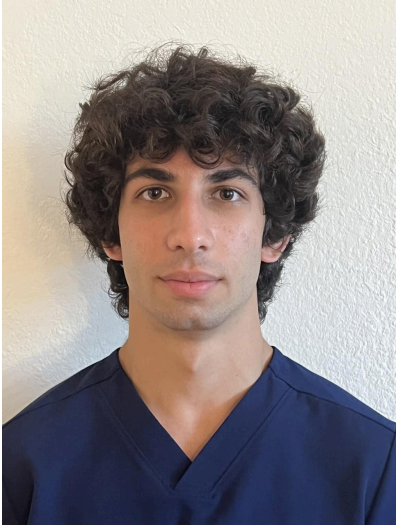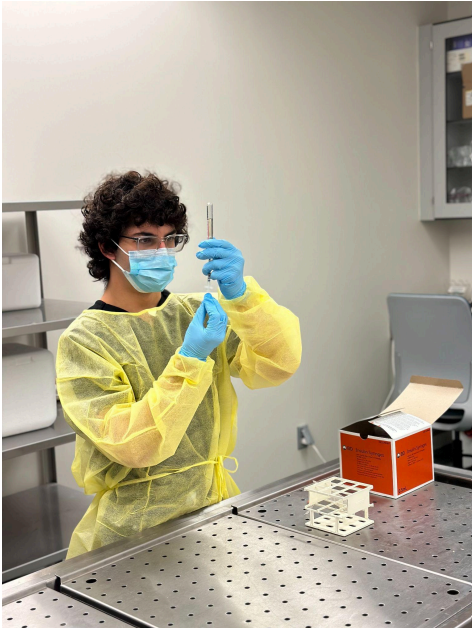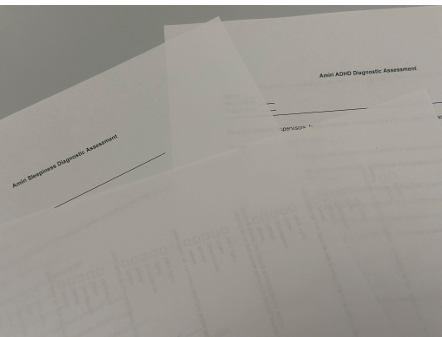Surgeon, CEO, and he’s only 21 years old

Dylan Amiri is a senior at the University of Miami pursuing a degree in biology, with plans to become a neurosurgeon. As an undergraduate, he has cultivated an impressive portfolio of accomplishments that exceed typical expectations, and we want to use this platform to try and inspire other undergraduates in the University of Miami community.
Upon arriving to the U, he immediately threw himself into research. The research of Dr. Oliver Bracko especially caught his eye, as he was investigating Alzheimer’s disease and potential vascular associations (specifically, reduced blood flow), hoping to uncover potential avenues for therapeutic interventions. Initially, Dylan did some wet lab research with micropipettes and setting up gels, but then, during a seemingly standard lab meeting, Dr. Bracko mentioned an opening for an undergraduate in the lab to begin conducting surgeries on the animals they were working with. Dylan was in love even with the idea of performing surgery in the future as a medical doctor, and for an opportunity to present itself where he could sample that dream already as an undergraduate – he was all over it.

Throughout his undergraduate career, he conducted a very delicate surgical procedure called a cranial window implantation: a part of the skull is removed and replaced with a glass window, allowing us to literally see what is happening inside of Alzheimer’s disease-inflicted brains. These surgeries have helped the lab uncover a potential immune response by the body as contributing to the blockage of blood vessels throughout the brain.
Dylan hopes to lead a surgery study focused on understanding the often-overlooked behavioral consequences of tympanic membrane perforation that can occur during stereotaxic surgery. While this detail might seem minor at first glance, its effects on the animals’ quality of life can be profound and debilitating. Dylan’s goal is not simply to collect data, but to spark a larger conversation across the scientific community about how survival surgeries on animal models are conducted. He hopes this work will inspire systemic changes at the university level and beyond, ensuring that all researchers approach these procedures with the utmost respect for life and an unwavering commitment to minimize harm – whether the patient is an animal or a human.
In laboratories, it’s easy for living beings to be reduced to numbers. Day after day, researchers may lose sight of the fact that behind every statistic is a creature experiencing fear, pain, or relief. By shedding light on the behavioral toll that small surgical details can have, he aims to engrave in the minds of researchers the responsibility they carry each time they perform an operation.
Ultimately, Dylan envisions a culture of research where animal safety is never an afterthought but rather the foundation upon which scientific discovery is built. He hopes that this project will ensure that animal safety both during and after any operation is of the highest standard.
Outside of his research at the university, Dylan also conducts retrospective chart reviews for a neurology clinic in Charlotte, North Carolina. His publication revealed significant inconsistencies between a questionnaire that we’ve been using for three decades to screen for sleep apnea–a sleep disorder characterized by repeated episodes of pauses in breathing during sleep–and further potential treatment, and the actual sleep study that revealed the patient’s sleep apnea severity — the screening tool was only correct 50% of the time, which puts patients suffering from sleep apnea in danger.
When he first discovered this while collecting data, he was appalled. For the medical community to have allowed patients to rely on this inconsistently accurate diagnostic assessment for 30 years was a shame, and it created a burning desire in Dylan to develop a new diagnostic assessment that patients could trust: the Amiri Sleepiness Diagnostic Assessment. But as he dug deeper, he realized sleep apnea was only one piece of a much larger problem. Misdiagnoses in attention-deficit/hyperactivity disorder (ADHD) were leaving countless children and adults misunderstood, stigmatized, or untreated, shaping some peoples’ entire lives around errors in recognition. Just as he refused to accept complacency in sleep medicine, he felt compelled to take action here as well, leading to the creation of the Amiri ADHD Diagnostic Assessment. This was built with the same vision: restoring accuracy, trust, and dignity to the patients who need it most.

Collectively, he turned this passion of wanting to change medical diagnostics for the better into a single company that represents these ideals, Amiri Diagnostics. The company has produced and obtained a copyright for the Amiri Sleepiness Diagnostic Assessment, and they’re working on the Amiri ADHD Diagnostic Assessment, hoping that it will improve our ability to detect and diagnose ADHD.
Dylan Amiri’s journey is a reminder that passion, curiosity, and compassion can reshape the future of medicine. As Dylan continues to carve his path toward neurosurgery and beyond, his story serves as proof that the next generation of physicians will not only heal patients but also reimagine how medicine itself is practiced. With determination, heart, and vision, Dylan is helping to create a future in which science advances hand in hand with empathy – and that is something worth looking forward to with hope.






